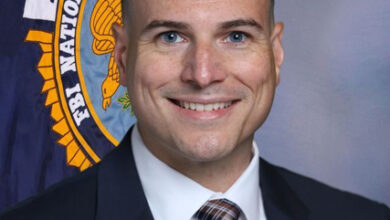The importance of taking medications as directed

The World Health Organization says that getting more patients to take their medications as directed, known as medication adherence, may have a greater impact on the health of the population than any improvement in specific medical treatments. But, according to the Centers for Disease Control and Prevention, at any given time, 50 percent of patients are not taking their medications as prescribed: They are nonadherent.
Nonadherence includes not filling a prescription, taking less than the prescribed dose, skipping doses, or discontinuing medications sooner than advised.
“We’re not only talking about prescriptions to treat a short-term illness, but also long-term medications to manage chronic conditions such as diabetes, high blood pressure, and high cholesterol,” says Mona Chitre, PharmD, Chief Pharmacy Officer and Vice President Clinical Operations and Health Innovation at Excellus BlueCross BlueShield. “When patients with chronic conditions stop taking their maintenance medications as directed, the consequences can be severe.” Unregulated high blood pressure, for example, can lead to kidney failure, heart disease, and stroke.
The National Institutes of Health calculates that nonadherence may result in 100,000 preventable deaths each year in the United States and $100 billion a year in preventable medical costs. The American Heart Association puts the impact of nonadherence on health care spending at nearly $300 billion a year in additional doctor visits, emergency department visits, and hospitalizations.
Research into medication adherence by Excellus BCBS found that reasons for nonadherence fall into one of three categories: They are patient related, medication-specific, or are health care system-related. Patients may forget to take their meds, misunderstand instructions, or decide they don’t need them any longer, especially if they have no overt symptoms. A specific medication may be too expensive, have undesirable side effects, or the dosing instructions may be complex. A lack of follow through or support from a physician or pharmacist may also result in patients not taking their medications as prescribed.
The CDC estimates that for every 100 prescriptions written, 50 to 70 are filled by a pharmacy, 48 to 66 are picked up by the patient, 25 to 30 are taken properly, and just 15 to 20 of those prescriptions are refilled as prescribed.
Something as simple as arranging for prescription home delivery, offered by many pharmacies, may increase medication adherence. Other tips include establishing a routine for taking medications, using pill box organizers, downloading phone app reminders, or asking the pharmacy to organize medications in blister packaging and labeling them with instructions on what to take and when.
“Patients who have issues with their prescriptions should reach out to their physician, pharmacy, or insurer with their questions or concerns, since those are the best sources for answers and assistance,” says Chitre. “When medications are taken as prescribed, health outcomes are improved, chronic conditions are managed, health care dollars are used efficiently, and lives are saved.”
Provided information






